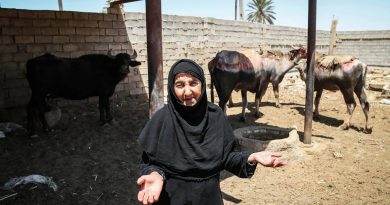“Let’s Make Nikah Simple” campaign to cut Big-fat weddings in Kashmir wins applause
While Islamic traditions taught by Prophet Mohammed (peace be upon him) make things easier and lighter.
An incredible campaign known as “Let’s Make Nikah Simple” started by a group of Kashmiri youth won applause in Kashmir valley with a lot of other NGOs and organizations planning to roll-out the concept in different areas of the state to cut down big-fat marriage ceremonies and customs, to a simple form of traditional Islamic wedding.
The campaign was started by a team called “Islam Way of Success (IWS)”, chaired by DRX Javeed Shameem. The campaign received green signal on 23rd of August 2020 by Shaykh Mohammed Yaqoob Baba Al-Madani who is the Mufti of a moderate Sunni-Muslim organization of Kashmir called as Jamiat Ahle-Hadees.
According to the manifesto of the IWS team, the campaign’s core agenda is to make Muslim marriages as simple as possible without any dowry culture—a culture whose origins go back to the Hindu marriage system where the father of the bride pays a huge amount of money to the groom. Moreover, high-demands and expectations from both the parties are also deemed as one of the reasons for delay in marriages.
The team claims that due to the dowry culture and other pompous customs, the Kashmiri society is inundated with the unmarried men and women, which is eventually causing societal degradation.
It’s believed that the women in the valley have crossed the age of 40 due to the unnecessaries.
The team describes the simple marriage ceremony in just six simple steps which they believe will lessen the burden on the society and will encourage the people to go for a “fast-track” process instead of big-fat weddings.
- First is, Ijab-o-Qubool where the two partners agree whole-heartedly for the marriage.
- Second is, the Mahar—an amount stipulated according to the Islamic tradition, which is gifted by the groom to his wife.
- Third is, Wali—a male member from bride’s side is incumbent to be present at marriage ceremony.
- Fourth is, the presence of eye witnesses.
- Fifth is, the marriage sermon.
- Sixth is, the simple Walima feast—which is Prophet Mohammed’s tradition to celebrate the marriage.
On the contrary, the team believes that various non-Islamic customs such as the dowry, the decorations and lavish feasts, the exchange of expensive gifts, the innovative ceremony of “Khatam Quran”—which takes place before a day of marriage, expensive dresses like Shervani and Legaa, and other post wedding ceremonies like Roth Khabar, etc. have burdened the society and are depriving the men and women from getting married. While Islamic traditions taught by Prophet Mohammed (peace be upon him) make things easier and lighter.
Local news papers like Sadaa-e-Kohastan covered the campaign to make it known far and wide in the valley. The team believes to take the campaign on a larger scale in the future.


